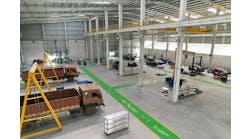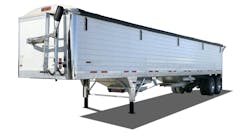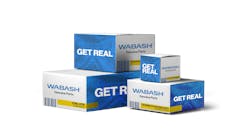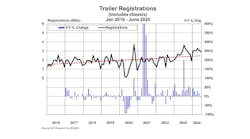Daimler Trucks North America (DTNA) is overhauling its aftermarket parts business in a bid to win a greater share of the truck parts market in the United States and potentially lay the groundwork to boost both new and used commercial vehicle sales.
It includes completely revamping its retail inventory management (RIM) system, raising the level of dealership performance, and improved leveraging of its network of six component remanufacturing facilities.
“Parts availability is the biggest driver of success in this business,” Friedrich Baumann, DTNA’s senior vice-president–aftermarket, said. “We need to make sure downtime in minimized for the customer, that our parts business is more closely aligned with the TCO (total cost of operation) goals of the customer. We must deliver on this day in and day out.”
Todd Biggs, DTNA’s director of aftermarket parts and service marketing, noted that accomplishing those goals will require a more “retail” approach by its Alliance Truck Parts division, as well as by creating what he called a “true all-makes” aftermarket parts portfolio.
“We want to get a bigger piece of the (parts and service) pie but not just for DTNA brands,” such as Freightliner and Western Star, Biggs said. “Part of that is helping the dealers see opportunity. By pulling customers into the dealership for parts, whatever their make of truck, we can help build trust in that dealer so that at the point they need to buy a new or used truck, they go to them.”
That’s also critical to helping DTNA and Alliance craft what Biggs dubbed a “reverse strategy” to build truck sales.
“Our research shows that while 50% of the first owners of a truck come back to the dealer for parts and service, only 34% of second and third owners do,” he said. “Basically, after six years of ownership, most aren’t returning to the dealer. So we want to create more value for them so they do return.”
Baumann said DTNA’s new RIM system—which has gone into pilot testing with dealers—is a crucial piece of that effort as its designed to improve parts forecasting as well as better position high-demand parts for national fleet customers.
Another piece focuses on the dealers themselves, through DTNA’s new Elite Support certification process, which uses 135 specific criteria across 19 “customer experience points” to measure dealership performance—a process that typically takes nine months for a dealer to complete, Baumann said.
“We have 120 locations certified so far, with 18 in the process,” he said. “We hope to have 300-plus by 2014.”
Finally, Baumann said DTNA expects its reman facilities—five in the United States, one in Canada—to play a larger role in helping customers manage TCO for their operations. “We see a huge opportunity in electronic component remanufacturing, especially on the powertrain side,” he said.
He even envisions a role for DTNA’s new Detroit Connect Visibility all-makes telematics solutions for mixed fleets—due to rollout in the 2014 first quarter—in helping grow the company’s presence in the aftermarket business. ♦








